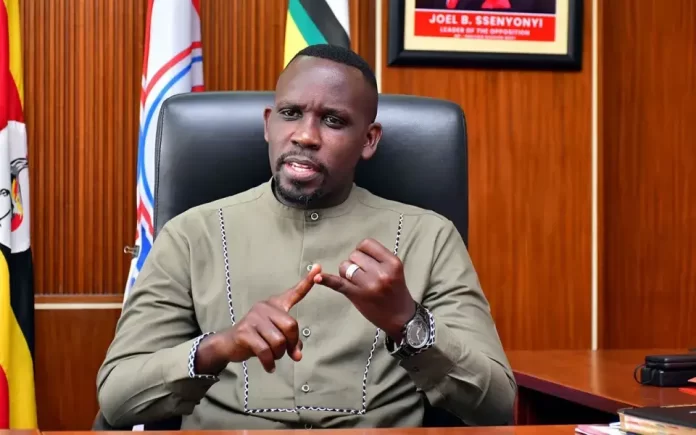Over the past few weeks, the political space has been occupied by a debate about reforms on the position of Leader of Opposition in Parliament (LOP). According to the Mityana County South Member of Parliament (MP), Richard Lumu, his proposed amendment to the Administration of Parliament Act 2024 seeks to have LOP elected by parliament as opposed to the current practice where LOP is appointed by only the party president with majority MPs.
As John Locke puts it in his Social Contract Theory, one of the fundamental principles of political liberalism is that ‘…there can be no subjection to power without consent.’
A big question arises on whether the current practice is not a subjection of opposition legislators to a leadership which they don’t consent to, since the powers are a monopoly of party presidents with majority opposition MPs?
More so, opposition MPs come from several political parties; for example, currently there are UPC, DP, NUP, and JEMA, among others, whose MPs are just subjected to an authority they don’t even know about.
Read Also: LOP Ssenyonyi Raises Concerns over Potential Fragmentation of Opposition in Parliament
Under a patronage system of administration, institutional, organizational, and political leadership is always appointed by the patron or patronizing authority, which is often legalized by the existing legal regimes. This often leads to inefficiencies and the collapse of the patronized institutions.
The Patronage System is also referred to as the Spoils System. This system is best explained by the unelected appointments in an organization or government. So, the patronage system allows politicians to give appointments to their friends, followers, family members, and other members. This is not different from what is going on with the process in which the current LOP is appointed, and I believe this is what Lumu is questioning.
The spoils system is only crucial in politics in screening for loyal political members. In short, it breeds inefficient political administration since the more competent may be considered un-loyal to the patron.
A country like Uganda with such a system (spoil system) in the opposition, which should be the key architects of delight democracy, will continue to have a vibrant but inefficient opposition and failures to implement a social welfare system, a rise in corruption, among others, as the focus on serving the people is severely diminished by the patronage system.
Patronizing political parties in Uganda has been the order of the day with the emergence of the strongman syndrome and the party founders’ syndrome that end up becoming permanent shareholders of the political parties.
Read Also: MPs Accuse Speakers of Parliament of Double Standards in Handling Private Members’ Bills
Additionally, the creation of the natural candidate syndrome, where patronizing individuals monopolize the political parties to mean themselves and present themselves as the only most eligible persons in the whole political organization to stand and contest for every general election. Many of these end up crippling the internal democratic mechanisms to limit competition and end up becoming sole candidates every time.
The good examples could include Col Kiiza Besigye in FDC; the NRM under President Museveni is an indispensable example; the Obote family in UPC, from Miria Obote to Amb. Olara Otunu to Jimmy Akena and still counting.
This week, the National Resistance Movement (NRM) and National Unity Platform (NUP) have presented their stance on the contentious Lumu bill before the legal and parliamentary affairs committee. The NRM, led by Secretary General Richard Todwong, expressed strong opposition to the bill, citing concerns it would undermine party authority over its members. “We need a strong opposition, but this bill will strip us of our authority,” Todwong stated. To me, this excuse is false.
Could the NRM fear the emergence or creation of a strong and uncompromising leader of opposition? Definitely, because it is inevitable that after the spoils system, new and strong leaders will emerge.
NUP rejected the bill, arguing it would allow the ruling party to compromise opposition MPs into voting for their preferred LOP.
“This bill targets our current leader, Joel Ssenyonyi, because he’s been proactive in fighting for Ugandans’ rights,” NUP SG Rubongoya noted.
The People’s Progressive Party (PPP), led by Sadam Gayiira, and FDC Whip Yusuf Nsimbabi also rejected the bill, citing lack of consultation.
Also, Col Kiiza Besigye came out earlier and opposed the bill.
Is the opposition enjoying the patronage system of governance? Can this patronage end in our political parties? Is it the end of the beginning or the beginning of the end to patronage in Uganda’s political parties?
Richard Bard Byamukama is a lawyer and a student of Security and Strategic Studies.















